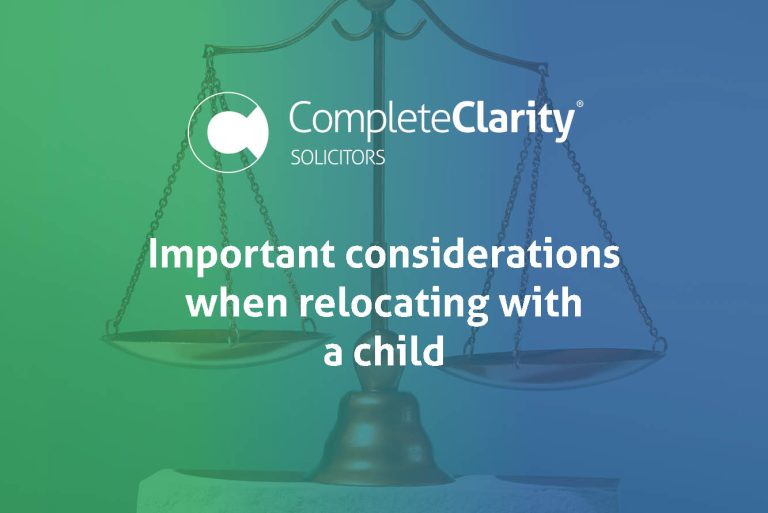In the United Kingdom, March 21st is recognised as Single Parents Day. It is an opportunity to contemplate the significance of child-centred thinking during separation, as it is supported by numerous organisations that assist single-parent families and is intended to counteract negative stereotyping of single parents.
Numerous studies have demonstrated that children flourish when they have positive connections with both parents. This does not necessitate that the parents reside together; in fact, the children will often benefit from the positive relationships between both of their parents when the parents can collaborate in making arrangements.
Divorce or separation is undoubtedly a challenging transition for any family. Occasionally, the children’s interests may be neglected due to a combination of financial and domestic concerns, as well as a variety of intense emotions. Sharing the responsibility of caring for the children is frequently one of the most significant concerns. Occasionally, this can be resolved amicably, with the assistance of a third party to expedite the process of making the necessary arrangements. Nevertheless, parents may not always feel comfortable convening to negotiate childcare arrangements.
If parents are unable to reach a consensus, they may commence issuing threats of court action and seek legal advice. Court actions can be time-consuming, costly, and frequently exacerbate preexisting tensions. Typically, parents are in the greatest position to make arrangements for their children. Approaching the court in these matters should be regarded as a last resort, and the children’s interests should be prioritised during any separation.
Strategies to assist you – Lawyers Glasgow Family Law
Relationships Scotland has recommended that parents who are amenable to engaging in discussions may find it advantageous to conduct themselves as though they were in a “business partnership.” They should communicate as if they are in a negotiation with one another, with the shared objective of reaching a mutually beneficial accord regarding the children’s upbringing. Your children will be reassured that their well-being is of the utmost importance to you, and they will feel at ease knowing that, although you may no longer reside together, you will continue to communicate.
In cases where parents are unable to convene and deliberate on issues, there are alternative approaches that are worth considering in addition to court action.
Mediation is one of the alternatives that could be investigated. Parental mediation is an effective method for parents to attempt to reach an agreement regarding their children’s arrangements. An impartial, trained individual will be present to facilitate discussions between the parents regarding their children’s requirements and to consider future arrangements for the children. Additionally, both parents will be present.
Family law team, child law, parental rights
At Clarity, we provide mediation as an alternative to the court process, in addition to others like arbitration and collaborative law. These services are provided by solicitors who have received specialised training. The purpose of these services is to assist parents in addressing the challenges that may arise during separation and to ensure that, whenever feasible, parents are the ones who determine the needs of their children.
Issues to consider
The residence of the children is one of the most critical matters to determine. There is no definitive response to this question; rather, you should evaluate which option is most advantageous for your family’s circumstances.
The press has reported on a novel approach known as “bird nesting.” The concept is purportedly from the United States and has since been introduced to the United Kingdom. This arrangement entails the first parent and the children residing in the family home during the week, while the second parent relocates to the home on weekends. During this period, the first parent vacates the residence. The advantage of avian nesting is that it provides the children with a sense of stability, as opposed to the possibility of them spending their weekends travelling across the country and beyond. Additionally, this arrangement may alleviate some of the financial burdens that parents face by eliminating the necessity of maintaining two separate sets of toys and clothing in two distinct locations.
Of course, “bird nesting” is not a suitable arrangement for all separating couples, and it is merely one of several options that parents may consider.
The age and lifestyle of the children are also significant factors to consider. It is common for young children to require a consistent routine, while adolescents should be permitted to maintain a degree of independence and flexibility, and should not feel compelled to spend time with their parents. This should be the primary consideration when establishing a shared care arrangement.
Additionally, it is crucial to consult with your child regarding any arrangements. Even in the best of circumstances, parenting can be a challenging endeavour, and the additional stress of separation may induce parents to feel the need to exert complete control over their children’s lives. Nevertheless, fostering an environment of transparency and dialogue with children, particularly adolescents, and valuing their perspectives can facilitate their comprehension of the circumstances and a smoother transition. If your children are mature enough, you should attend to their desires regarding arrangements and endeavour to accommodate them to the best of your ability.
Ask about child-inclusive mediation if you are utilising a mediator to assist you. This entails a mediator who has received specialised training in communication with the children, who, with their consent, provides feedback on any care plans.
Moving Forward – Get in Touch Scotland Solicitor Glasgow
If an agreement can be reached outside of the court system, parents may wish to formalise the agreement with a solicitor through a Minute of Agreement.
Not only can an agreement specify care arrangements, but it can also specify financial aspects of the separation. This would guarantee that the other party adheres to the terms of the agreement and establish a degree of certainty in daily life.
Our Family Law team at Clarity is both experienced and dedicated. Please reach out to a member of the Family team at 0141 433 2626 for additional information regarding the agreement of child care arrangements during a separation or divorce.







